What Every Woman Knows

Brief Synopsis
Cast & Crew
Gregory La Cava
Helen Hayes
Brian Aherne
Madge Evans
Lucile Watson
Dudley Digges
Film Details
Technical Specs

Synopsis
In the village of Kilburne, Scotland, twenty-six-year-old Maggie Wylie lives a spinster's life with her two bachelor brothers, James and David, and her widowed father Alick. One evening, after a town political meeting at which David is shouted down by John Shand, a poor but ambitious train station porter, the Wylies pretend to go to bed in order to catch an intruder who has been sneaking regularly into their home. To their surprise, the intruder turns out to be John, whose intention is not to steal from the Wylies, but to read the books in their parlor. Desperate to see their bright but plain sister married, James and David propose a plan to the somber young scholar: if the Wylies contribute £300 to John's education, he must marry Maggie in five years if she is still single. In spite of Maggie's age, the twenty-one-year-old John agrees to the deal, and a formal contract is signed. Five years later, as the now-educated John is preparing to fulfill his end of the bargain, he is asked to run for Parliament against an aristocratic incumbent. Out of respect to Maggie, John refuses the invitation, but Maggie, who has genuinely fallen in love with her fiancé, convinces him that their marriage can be postponed until after the election. After a difficult campaign, John wins the election, and he and Maggie marry and move to London. Soon after, John is befriended by Lady Sybil Tenterden, the attractive daughter of a Scottish party leader, who schools the lowborn Scot in aristocratic manners. Then while Maggie, who magnanimously had offered John a chance to back out of their deal, quietly helps her husband's political career, John begins an affair with Sybil. When Maggie discovers John and Sybil together one day, she nobly offers to grant a divorce but suggests that, before John resigns his Parliament seat, he go to the country for a month to finish his book on the British gold standard. Maggie also arranges for Sybil to join John in the country, while she secretly goes to see Charles Venables, John's party's leader. Using the resignation letter that John had written in regards to his divorce, Maggie convinces Venables that John actually is resigning in protest of the country's stagnant economic policies. After John then is hailed as a political hero and is promised an important new post, Sybil admits to John that she has grown tired of their affair. Quietly relieved by Sybil's confession, John returns to his London home and is overjoyed to find Maggie waiting for him. After Maggie reveals to John that "what every woman knows" is that the success of men depends on the secret manipulations of their women, she cajoles her husband to laugh for the first time in his life.

Director

Gregory La Cava
Cast

Helen Hayes
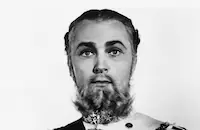
Brian Aherne

Madge Evans

Lucile Watson
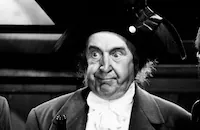
Dudley Digges
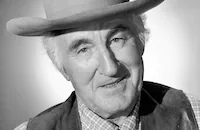
Donald Crisp
David Torrence
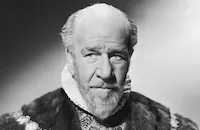
Henry Stephenson
William Stack
Neil Fitzgerald
Pat O'hara
Janet Murdock
Olaf Hytten
Eve Harrower
Phillip Dare
David Thursby
Phyllis Coghlan
Elinore Grant
Lowden Adams
Wilson Benge
Norman Ainsley
George Cowl
Col. Mcdonnell
Winter Hall
Ramsey Hill

Leo Carroll
Harry Allen
Dan Maxwell
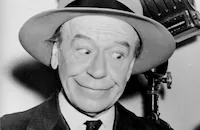
Donald Meek
Larry Burke
Crew
Adrian
Marian Ainslee
Cedric Gibbons
Monckton Hoffe
John Hoffman
Lansing Holden
Gregory La Cava
James K. Mcguinness
John Meehan
Charles Rosher
Les Selander
Blanche Sewell
Douglas Shearer
Herbert Stothart
Irving G. Thalberg
Edwin B. Willis

Videos
Movie Clip


Trailer
Film Details
Technical Specs

Articles
What Every Woman Knows (1934) -
By Violet LeVoit

What Every Woman Knows (1934) -
Quotes
Trivia
Notes
The title card on the viewed print reads: "Sir James Matthew Barrie's What Every Woman Knows." Helen Hayes appeared as "Maggie" in a successful 1926 Broadway revival of Barrie's play. According to an August 1933 Hollywood Reporter news item, M-G-M paid Paramount $65,000 for the rights to the play. Although Boyd Irwin is credited in Film Daily and Variety as playing the role of "Tenterden," other sources, including the Call Bureau Cast Service and New York Times, credit William Stack in the part. According to a September 7, 1934 Hollywood Reporter news item, La Cava put the film "back into production" on 6 September to shoot added scenes and re-takes. In a modern interview, Hayes states that, after a disappointing preview in the Huntington section of Los Angeles, director Gregory La Cava ordered the cast and crew back to the set for re-takes and threatened to put "every Joe Miller Scotch joke ever written" into the script. According to Hayes, the jokes were not actually used in the final film, but La Cava's attitudes contributed to Hayes's decision to abandon films and concentrate on her theater work. Modern sources also claim that M-G-M production head Irving Thalberg conducted a survey to determine whether the public wanted the film shot in period or modern dress. When the poll results indicated that the audience preferred modern dress, the costumes were designed accordingly. In 1917, Fred W. Durrant directed Hilda Trevelyan in a silent British version of Barrie's story, and in 1921, William C. de Mille directed Lois Wilson and Conrad Nagel in a Paramount production of the Barrie play (see AFI Catalog of Feature Films, 1921-30; F2.6201). In the early 1940s, a radio version of the play, starring Helen Hayes, was broadcast on the weekly radio program Helen Hayes Theatre of the Air. A second radio broadcast was done on March 2, 1947 for the Theatre Guild of the Air program. The CBS television network broadcast a production of the play in January 1959, which starred Siobhan McKenna and James Donald and was directed by Robert Mulligan.















